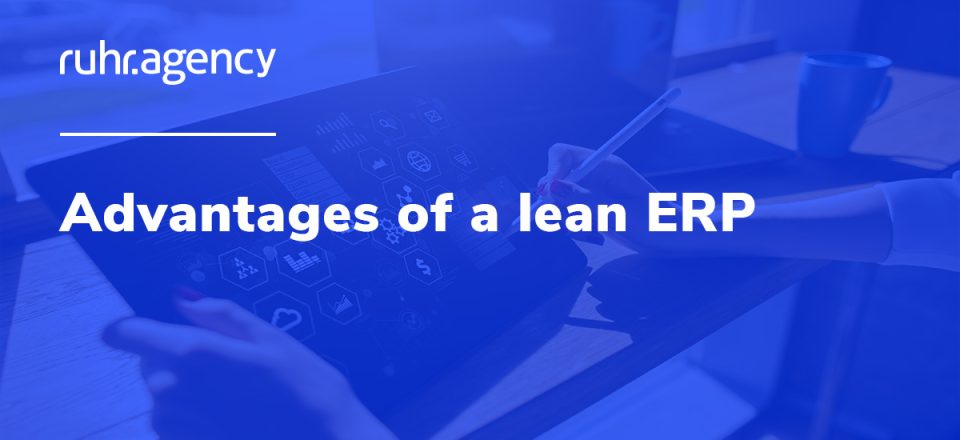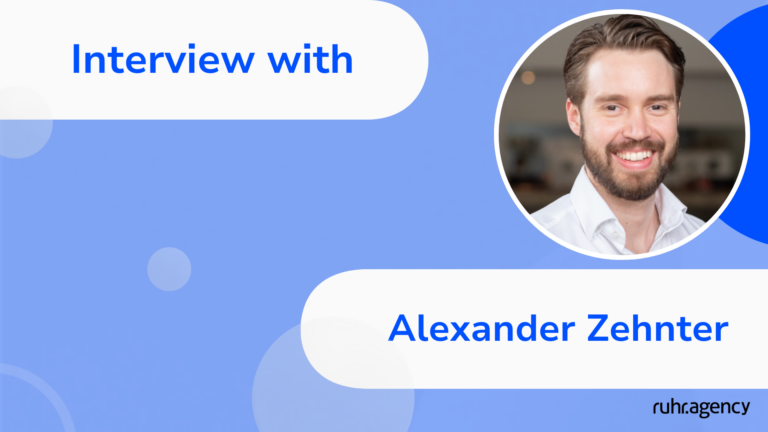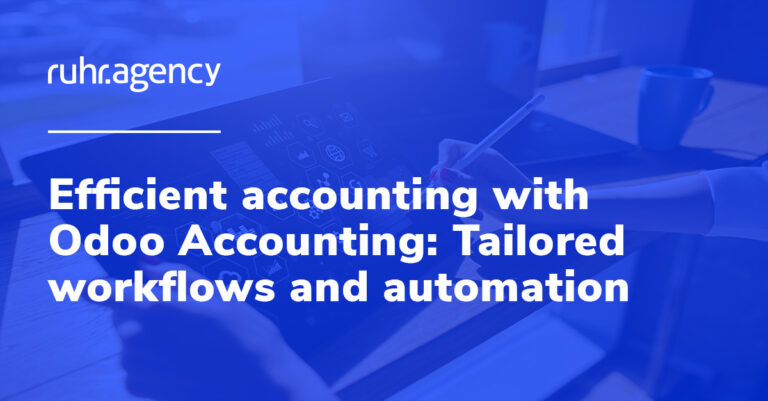When thinking of Lean, one first thinks of Lean Software Development. This term is based on Lean Production and transfers the principles of this process to the development of software. The principles of lean production include avoiding waste and using production factors from all areas of the company economically and efficiently. Production factors can be operating resources, personnel, materials, but also the planning and organisation of company activities. In software development, lean development primarily involves an agile approach that takes the following aspects into account: avoidance of waste, integration of quality, creation of knowledge, fast action and constant optimisation.
But what does Lean ERP mean? An ERP system is software for planning the resources of a company or organisation. ERP integrates a variety of business applications and operational data that are processed and stored in a central database.
Usually, an ERP system is a very powerful and comprehensive piece of software, as it includes and can map all operational processes. The maintenance, operation and use of such a system also involves a lot of effort. Can an ERP still be lean? The answer is yes. Because in recent years, more and more “lean” ERP systems have established on the market.
Lean, flexible and automated
Similar to Lean Production, a Lean ERP focuses on the key areas of a company and deliberately dispenses with the unnecessary. A lean architecture is characteristic of a Lean ERP. The goal of these lean systems is to optimise, streamline and automate processes within the company.
Because of this flexibility, a Lean ERP is particularly suitable for companies that are growing and whose processes change quickly. Due to its architecture, a Lean ERP is designed to grow flexibly with the needs by connecting external systems. Existing or new systems can often be easily integrated into a Lean ERP. Therefore, it is especially interesting for young companies that do not yet have fixed processes and systems.
For these companies, Lean ERP creates added value in the following areas:
- Process optimisation
- Simplification of administration
- Homogenisation of the IT infrastructure
- Centralisation of reports and information
ERP implementation: Time and money are key factors
In contrast to the large ERP systems such as SAP, a Lean ERP can be implemented fairly quickly. We cannot state an exact time frame but, depending on the existing structures and processes, a Lean ERP can usually be set up ready for operation in about twelve weeks. If you plan to use a market leader, you have to reckon with up to twelve months (or much more). Of course, this is also reflected in the costs of the project.
Speaking of money: a substantial factor are the ongoing operating costs. In this respect, too, Lean ERP is geared to the needs of small and medium-sized enterprises that are growing. There are often three to four versions with varying degrees of functionality. If the company grows, users can be added flexibly. With the large ERP providers, on the other hand, the price structure looks more complicated. In addition to the monthly basic costs for each user, there are further costs. These include licence costs, hosting, application servers or additional functions. In total, you pay many times more with the top dogs – both for the implementation and the ongoing operation.
Lean ERP – for whom?
For large companies that want to map their production, purchasing, accounting, many sites and international company units as well as their CRM and other systems in one ERP, a Lean ERP is no option. A Lean ERP is aimed at companies that are facing the first growth thresholds and are asking themselves how they can optimise their structures and establish lean processes. Companies that need a system that helps them create clearly defined workflows and gain an overview of existing and future processes are the target group of a Lean ERP.
For instance, let’s take the manufacturer of nutritional supplements More Nutrition or the fashion label MYMARINI. Companies that are growing rapidly and have transferred their growth into homogeneous structures and optimised processes with the help of the Lean ERP system from xentral. Through the conversion, they were able to centralise decentralised company structures, handle peak order loads or integrate external systems that were previously isolated solutions. Lean ERP was developed precisely for this type of company.




